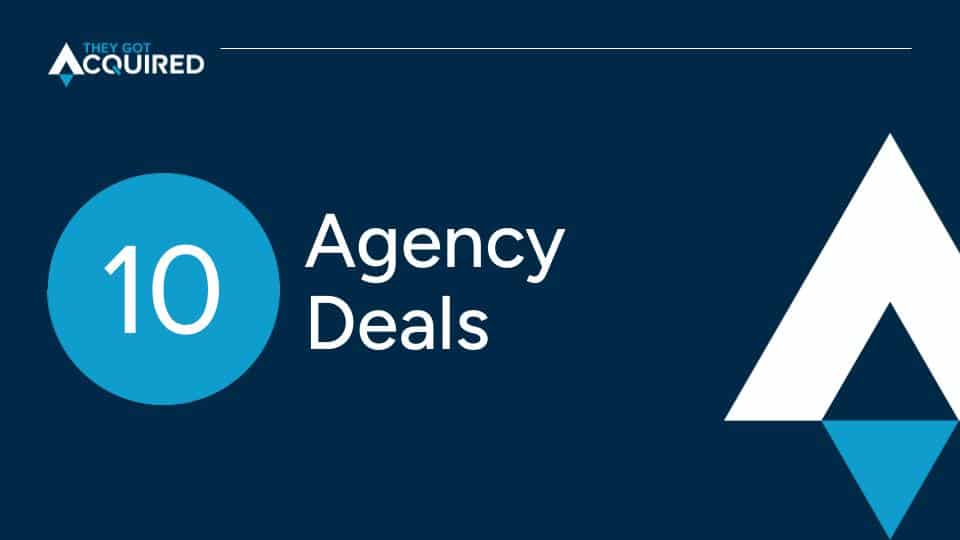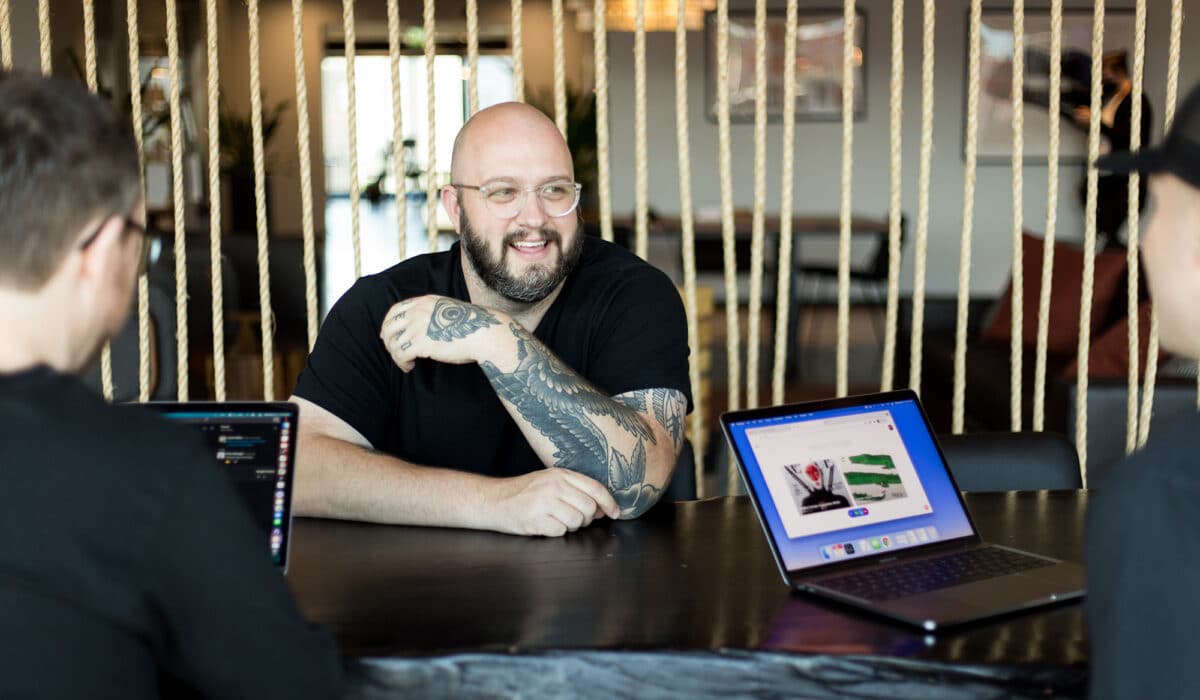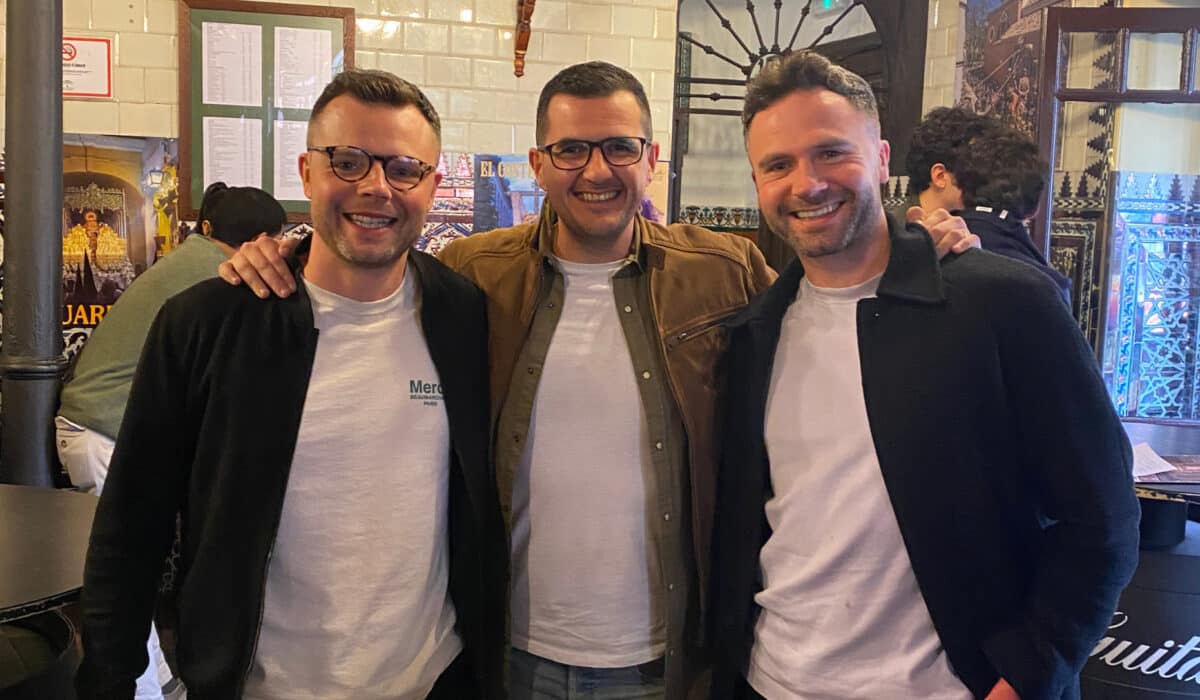When Robert Glazer decided to sell his affiliate marketing agency, he thought a lot about what he wanted the deal to look like — and what other elements he should consider for the transition.
Instead of an outright sale, his Boston-based Acceleration Partners brought on an investor: Mountaingate Capital, a private equity firm.
By selling a majority stake of the company, Glazer was able to reduce his personal financial risk while providing the business a sustainable path for growth. And all the while, he thought about the next step post-deal: planning for his eventual successor.
How Glazer’s affiliate marketing experience grew “accidentally” to 170 employees
Glazer got into affiliate marketing “sort of accidentally” by running a program for Tiny Prints holiday cards and announcements, which worked primarily with mom bloggers.
“It was one of the first programs that connected with all these content partners when, at the time, everything was very discount- and deal-oriented in the affiliate world,” he said on the Built to Sell podcast in February 2022.
When Glazer’s former colleagues wished to replicate the success of the Tiny Prints (now a part of Shutterfly) affiliate program at other companies in Silicon Valley, they called Glazer for advice. Those interactions led him to launch Acceleration Partners in 2007.
The company grew quickly, and on podcast interviews, Glazer said the firm had a growth rate of between 25 and 30% for about 10 years, all relying on cash flow. He staffed Acceleration Partners heavily, avoiding having one account manager with dozens of client relationships to manage. Over time, the firm grew to about 170 employees worldwide.
The high-touch approach helped clients see greater success with their accounts, but limited Acceleration Partners’ profitability, he explained. The firm’s fastest growth years were the most “cash strained,” because as larger clients came onboard, they often wanted 60- or 90-day payment periods. Glazer had to navigate the dual stresses of staffing those new accounts and figuring out how to navigate short-term payment gaps.
How Glazer decided it was time to sell
Glazer said he and the Acceleration Partners management team discussed selling the business before the Covid-19 pandemic, as interest swelled around the affiliate marketing industry and tech players consolidated some service-focused businesses.
Those conversations stopped when the pandemic hit, and the business had to focus on the basics of survival. Acceleration Partners adjusted its pricing and contract terms in March 2020 to respond to rapidly changing financial concerns for brands and clients, allowing them to sign on for hourly or monthly support.
By the summer of 2020, the company restarted discussions about selling, and by fall 2020, it had renewed interest from outside parties. It was time for Glazer to make a move, partly for his financial security — Acceleration Partners had grown to $28 million in annual revenue.
“As a business starts to get big … it almost felt like I had this house that I couldn’t afford,” he said on Built to Sell. “You own the house, but the maintenance is a lot.” Glazer knew he had created something “valuable beyond myself” once Acceleration Partners surpassed $10 million annual revenue. The company didn’t rely expressly on his personal brand.
But what it took to support the business in case of an emergency had grown beyond Glazer’s comfort level. He had a home equity line of credit for his home worth $500,000, and an equity line of credit for the business. Those emergency sources of cash would have once covered nine months of payroll for the company, but had gotten to the point of not even covering a month of employee pay, Glazer said.
And in a service business “where 90% of your expense is payroll,” he said, “I don’t ever want to be in that position to have to choose between my family’s well-being and the well-being of my employees.”
Details of the majority sale
Glazer and his team interviewed three investment bankers with experience in their industry before choosing one they were confident could get prominent potential buyers to consider a purchase in the same timeframe. With Petsky Prunier as an advisor, management began interviewing three interested parties, all from the private equity world.
Glazer said he preferred private equity over big agency holding companies because the latter tended to offer deals with several-year earn outs. “The earn out, with not having control, is so much less attractive than putting your risk in the deal but separating your role from your equity,” he said on Built to Sell. None of his peers, he said, had taken a deal with a multiple-year earn out period.
Among the three contenders, Mountaingate felt like an especially good fit for Acceleration Partners because the firm specialized in marketing services, Glazer said. It also helped that Glazer knew someone who was already three years into a partnership with Mountain Gate, and “raved about the team,” he said.
But even though he was confident Mountaingate was the right fit, Glazer noted the due diligence process was “mentally exhausting and debilitating.” Fatigue is inevitable as the management team answers round after round of inquiries about various aspects of the business. That period of potentially two or three months “I think will be the longest of your life, and you should prepare for that,” he said.
Though the terms of the December 2020 deal aren’t public, Glazer acknowledged on Built to Sell the deal was roughly 8 to 9x Acceleration Partners’ earnings for a majority stake.
Glazer did not respond to requests for comment for this story.
After the deal, Glazer changes roles
Shortly after the deal with Mountaingate, Acceleration Partners announced it was making an acquisition of its own: It took over performance marketing agency Streamline Marketing, a move that took Acceleration Partners’ employee count over 200. (Read our article about that deal.)
About a year after announcing the deal with Mountaingate, Glazer announced he would be stepping down from the CEO role at Acceleration Partners. But Glazer had someone in mind for 10 years to succeed him, he told Alissa Cohn on the From Start-Up to Grown-Up podcast. Matt Wool had already managed day-to-day operations as president for five years when he was named CEO in December 2021.
Since then, Glazer stepped into the board chair role. But Acceleration Partners has continued to bring other firms into the fold.
It has acquired Influencer Response and Volt Agency, which merged in May 2022 before selling, along with R.O.Eye and Grovia — all of them players in performance and affiliate marketing.


